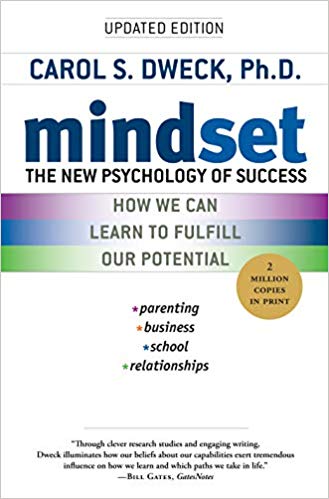

This article is an excerpt from the Shortform summary of "Mindset" by Carol Dweck. Shortform has the world's best summaries of books you should be reading.
Like this article? Sign up for a free trial here .
In general, in the fixed mindset world, success is about proving to yourself and others that you’re smart and talented. It’s about validation. If you fail, it means you’re not smart or talented, therefore failure is intolerable. If you have this mindset, it’s hard to learn how to overcome fear of failure.
We’ll cover Carol Dweck’s advice for overcoming fear of failure and discuss why fear of failure is holding you back.
Overcoming Fear of Failure
Failure is any type of setback: a bad grade, losing a competition, not getting the job or promotion you want, being rejected. Effort is a negative — if you need it, that means you’re not smart.
One reason people with a fixed mindset feel they have to be perfect is that they see every test or evaluation as a permanent measure of their ability. This leads to an overwhelming fear of failure.
For example, in a study of fifth graders, researchers told them that a certain test could measure their ability. Although the researchers provided no other information about the test, the fixed-mindset students concluded that it could not only measure how smart they were, but it could also measure how smart they’d be as adults, essentially defining them forever. Growth-minded students didn’t believe a test could measure how smart they were, nor did they believe it could predict how smart they’d be in the future because their intelligence was always growing. This is a key to learning how to overcome fear of failure.
Fixed-mindset educators do in fact believe you can measure someone’s ability and determine their potential. But those who’ve tried to do that have been wrong repeatedly. Examples of people who were told they lacked potential include Charles Darwin, Marcel Proust, Ray Charles, Elvis Presley, Lucille Ball, and Jackson Pollock.
By definition, you can’t predict potential, if it’s understood as the capacity to develop over time with effort and training. It’s impossible to be certain of how far anyone can go with effort and training. For example, many of artist Paul Cezanne’s early paintings were terrible. He needed time and effort to develop. Failure is not your identity. Understanding this can help you learn to deal with a fear of failure.
Ability to grow may be a more important indicator for future achievement than current success. This is another fact that can help with overcoming fear of failure:
- When NASA solicited applications for astronauts, it looked for people who came back and learned from failures, rather than those with a string of successes.
- As CEO of General Electric, Jack Welch chose executives based on their capacity to develop.
- Famed ballet teacher Marina Semyonova chose to work with students who took criticism as motivation to improve.
Failure is hard for growth-minded people too, but they don’t let it define them. They see it as something to confront and learn from. For example, Minnesota Viking Jim Marshall didn’t let a spectacular failure define him. He grabbed a loose ball and ran into the wrong end zone, scoring for the opposing team, the 49ers, on national television. Rather than sitting out the rest of the game and feeling ashamed, he went back in and played well during the second half, contributing to a win for his team. After the game, he continued to use the experience in a positive way, answering letters and speaking to groups about coping with failure, while he also worked to improve as a player. Coping well with failure helps you learn to how to overcome your fear of failure.
People with fixed mindsets may blame others or make excuses. Every time he lost a match, John McEnroe had an excuse — he had a backache, he overtrained, he ate before the match, or he was a victim of unfair expectations. In contrast, when growth-minded CEO of General Electric Jack Welch made poor decisions leading to poor results, he personally phoned top colleagues to deliver the news and take the blame. Taking responsibility for your actions while also understanding that the outcomes of your actions don’t define you is crucial for overcoming fear of failure.
Effort is Risky for Fixed-Minded People
If you believe you’re supremely talented, you have more to lose by trying than untalented people have. Effort is scary for people with a fixed mindset because:
- Geniuses aren’t supposed to need effort.
- If you apply effort and failure, you don’t have any excuses. But if you didn’t try and failed, you can say, “I could have done (X).” This is the mindset of someone who has a fear of failure.
Nadja Salerno-Sonnenberg, a talented young violinist who debuted at age ten with the Philadelphia Orchestra, almost derailed her career when she reached Juilliard and refused to expend any effort out of fear of failing. When she arrived there and faced stiff competition, she lost confidence. She had many bad habits, including the way she held her violin, but she wouldn’t change them. She stopped bringing her violin to lessons until the teacher confronted her. Afraid of losing the teacher, she made a turnaround and trained seriously for a competition, which she won, having learned the value of effort.
Fear of effort and fear of failure can stymie relationships too. For example, a woman who was accustomed to short-lived relationships with inconsiderate boyfriends was unsettled when she started dating a considerate man. She really liked him but feared putting effort into the relationship because she’d be a failure if it didn’t work out. So she didn’t take the risk and lost out on a potentially rewarding relationship.
In contrast, for a growth-minded person, failure is not making the effort to pursue something you really want. Tennis great Billie Jean King said that when you look back on your life, you can say one of only two things: “I gave my all” or “I could have been…” Growth-minded people believe in giving their all.
Change Your Mindset: Tips for Overcoming Fear of Failure
- A fixed mindset can undercut your enjoyment of learning. Did you ever enjoy something for a while and then want to quit when it started to seem more difficult? You were probably in a fixed mindset. Create a growth mindset by imagining your brain growing by forming new connections as you keep learning.
- If a past failure keeps bothering you, try rethinking it from a growth perspective. Think about what you can learn from the situation and how you can grow.
- It feels great to be around people who think we’re perfect, or who don’t question or criticize us. Many of us would rather avoid negative feedback — but give yourself an opportunity to grow by asking someone for constructive criticism.
- Do you give up and withdraw when you feel depressed? Next time, try to put yourself in a growth mindset by doubling down when things are difficult. View effort as an asset.
Learning how to overcome fear of failure is a long process, but well worth it.
———End of Preview———

Like what you just read? Read the rest of the world's best summary of "Mindset" at Shortform . Learn the book's critical concepts in 20 minutes or less .
Here's what you'll find in our full Mindset summary :
- The difference between a growth and a fixed mindset
- How a fixed mindset keeps you back throughout your life: education, relationships, and career
- The 7 key ways to build a growth mindset for yourself






